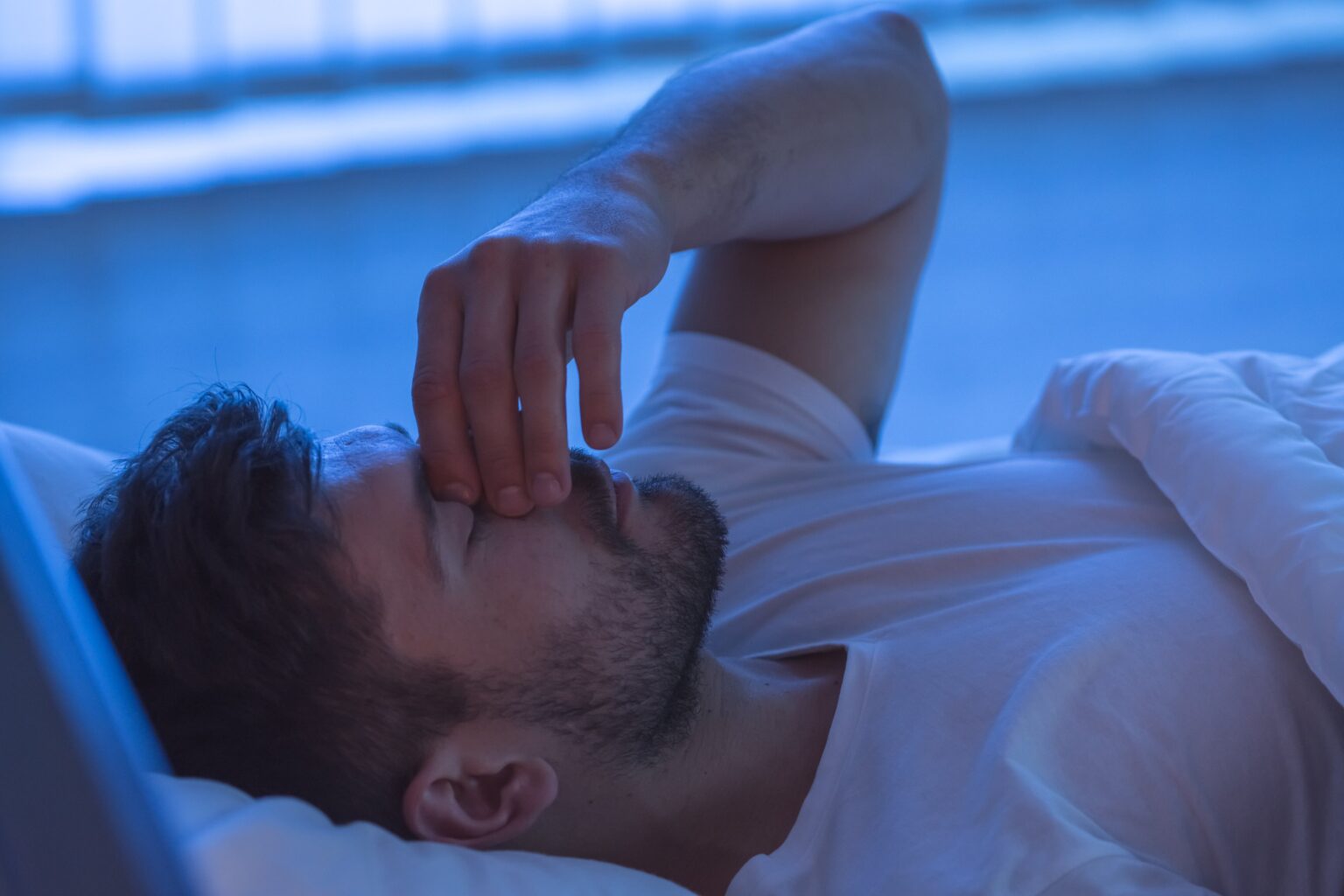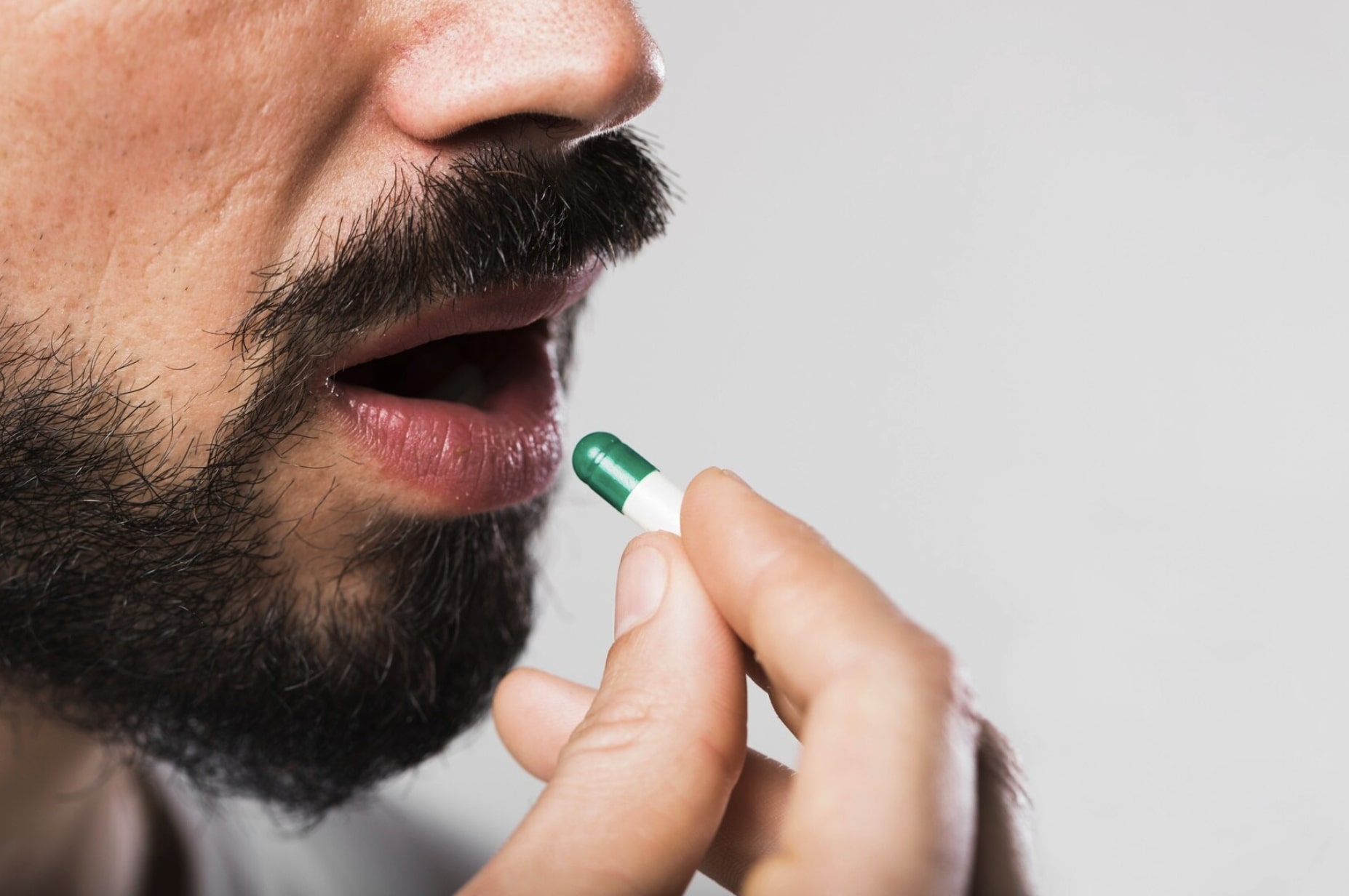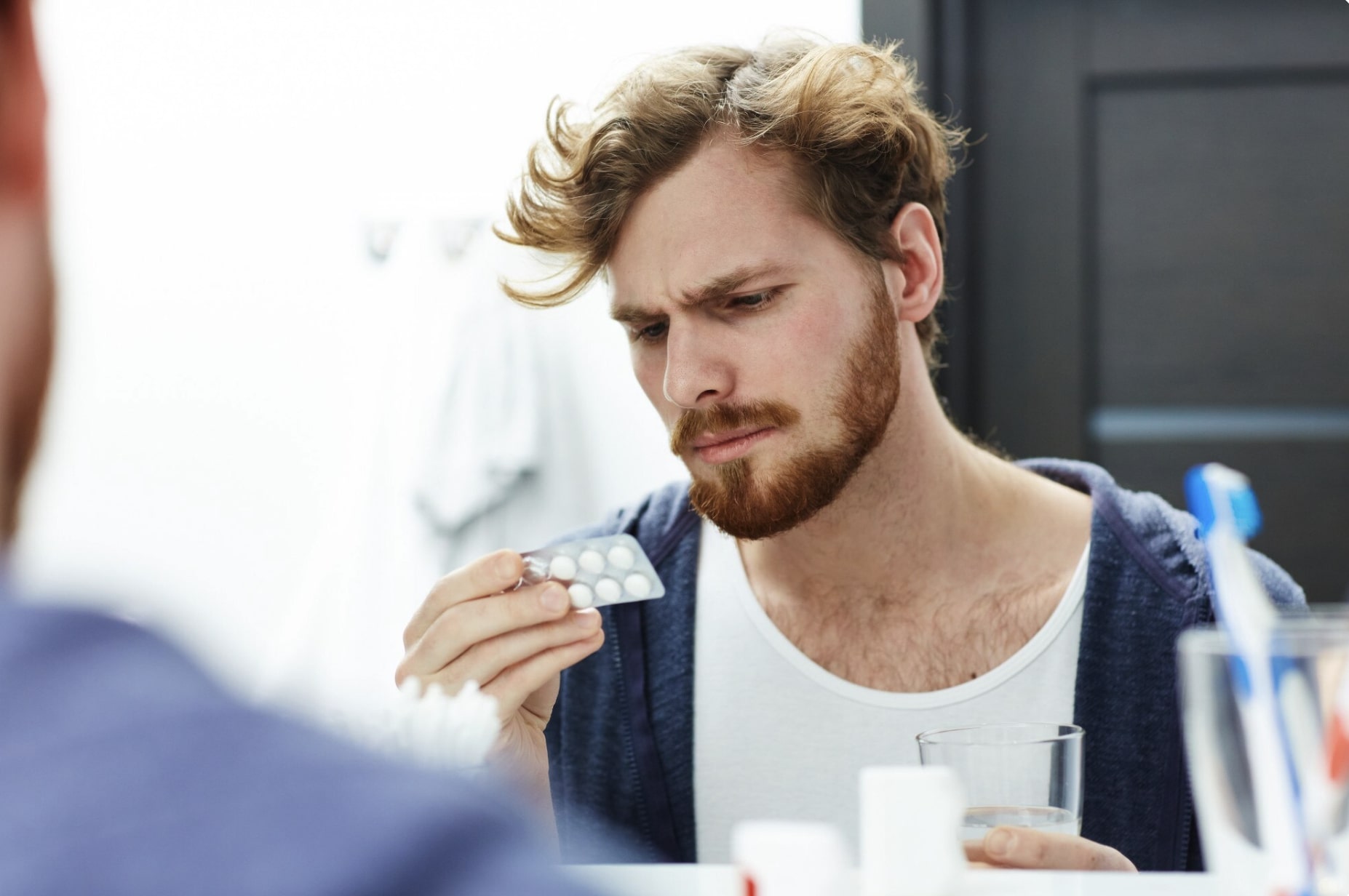Sleep issues like chronic fatigue, insomnia, or night sweats aren’t always caused by poor habits or stress. For many men, low testosterone is a root cause that’s frequently overlooked. Recent estimates suggest that 20–40% of men over the age of 45 have testosterone levels low enough to cause significant symptoms — and the risk increases with age. (1)
Testosterone is critical in regulating the body’s sleep-wake cycle, energy production, and overall recovery. Testosterone levels are typically highest around 8 a.m. and lowest around 8 p.m., and proper sleep facilitates this normal cycle of testosterone production. (2) When testosterone levels fall below optimal ranges, the result is often poor-quality sleep, disrupted rest, and an ongoing state of exhaustion.
What’s more concerning is that the relationship between sleep and testosterone is bidirectional. Poor sleep reduces testosterone production, and low testosterone, in turn, worsens sleep. This creates a compounding cycle that leads to mounting symptoms over time.
Understanding the direct link between low testosterone and sleep is essential for addressing these issues effectively. Left untreated, hormone imbalances can sabotage not only your rest but also your long-term health and quality of life.
How Low Testosterone Affects Sleep
When testosterone levels decline, the consequences often show up first at night — and they’re not always easy to trace back to hormones. Here are four of the most common ways low testosterone interferes with sleep:
Insomnia and Restlessness
Sleep deprivation is now considered a public health epidemic, and it disproportionately affects men with hormonal imbalances. Among men with low testosterone, poor sleep quality affects an estimated 30–50%. (3)
Men with hypogonadism — the medical term for low testosterone — often struggle to fall asleep or stay asleep. Testosterone interacts with neurotransmitters in the brain that help regulate circadian rhythms and promote deeper sleep cycles. When levels drop, this regulatory system falters, leading to shallow, disrupted sleep patterns.
In some cases, these disturbances progress into full-blown insomnia, where men may lie awake for hours or wake frequently throughout the night with no clear cause.
Low Testosterone Night Sweats
Low testosterone can also be the cause of another highly disruptive hormone symptom: night sweats. (4) Night sweats are one of the most disruptive symptoms of low testosterone in men and are often misattributed to other conditions.
Hormonal shifts can alter the hypothalamus’s ability to regulate body temperature, resulting in sudden episodes of overheating, sweating, and sleep disruption. These night sweats often come without warning, leaving men feeling uncomfortable, sleep-deprived, and confused about the underlying cause.
Poor Sleep Quality
Even if sleep duration remains technically adequate, low testosterone significantly degrades sleep architecture — the structure of sleep cycles throughout the night. Specifically, men with low T often experience:
- Less deep (slow-wave) sleep, which is crucial for tissue repair and recovery
- Reduced REM sleep, which supports cognitive performance and memory
- More frequent awakenings, resulting in fragmented and non-restorative sleep
This results in you waking up feeling unrefreshed, foggy, and sluggish — regardless of how long you were in bed.
Fatigue and Poor Recovery
Testosterone supports the body's recovery mechanisms, including muscle repair, energy metabolism, and motivation. Without sufficient testosterone levels, men often experience persistent fatigue, even after what they perceive as a full night of rest. (5)
This typically doesn’t manifest as just everyday tiredness — it's a deeper form of physical and mental exhaustion that limits performance, mood, and overall vitality.
How Poor Sleep Makes Low Testosterone Worse
The connection between sleep and testosterone levels isn’t one-directional. High-quality sleep is necessary for adequate testosterone production, and when sleep is compromised, hormone levels also suffer.
Testosterone Is Produced During Sleep
Research shows that the majority of daily testosterone secretion typically occurs in the early morning hours. (6) If those sleep stages are disrupted — whether due to insomnia, stress, or physical conditions — testosterone output drops.
One clinical study found that even one week of restricted sleep (fewer than five hours per night) resulted in a 10–15% decrease in daytime testosterone levels in healthy young men. (7) The impact can be even more pronounced in older men, whose hormonal reserves are already declining.
Sleep Apnea and Low Testosterone
Obstructive sleep apnea (OSA) is a serious but common condition in men that directly affects testosterone levels. OSA causes the airway to collapse during sleep, triggering intermittent pauses in breathing and reducing oxygen flow to the brain and body. Symptoms of OSA include loud snoring, gasping during sleep, or waking up with a headache.
Studies have linked sleep apnea and low testosterone, suggesting that untreated OSA leads to significantly lower total and free testosterone levels. (8)
What’s worse is that the relationship is cyclical: low T may also increase the risk of developing or worsening sleep apnea.
This establishes a dangerous loop:
- Poor sleep → Reduced testosterone production
- Low testosterone → Disrupted sleep quality and night sweats
- Repeat, with worsening outcomes over time
Without intervention, this hormonal-sleep cycle erodes both physical health and mental well-being, which can increase the risk of obesity, depression, cardiovascular disease, and metabolic dysfunction.
How to Improve Sleep and Testosterone Health
Fortunately, there are several clear, evidence-based strategies to break the cycle and restore both sleep quality and hormonal balance.
Healthy Sleep Habits
Prioritizing sleep hygiene is the foundation of hormone health. These habits support deeper, more restorative rest:
- Establish a consistent sleep-wake schedule, even on weekends.
- Create a sleep-friendly environment: dark, cool, quiet, and free of screens or blue light exposure.
- Minimize stimulation before bed with calming routines like reading, stretching, or meditation.
- Manage stress, as elevated cortisol interferes with both sleep and testosterone production.
Address Sleep Disorders
Conditions like obstructive sleep apnea should be properly diagnosed and treated.
CPAP therapy, dental devices, or positional therapy may be prescribed based on the severity of apnea. Treating OSA often results in notable improvements in both sleep quality and testosterone levels in a short period of time.
Lifestyle Changes
Several lifestyle factors directly influence both sleep and hormonal health, such as:
- Exercise regularly, particularly resistance training, which is shown to increase natural testosterone production. (9)
- Maintain a healthy weight, as excess body fat — especially visceral fat — lowers testosterone and increases the risk of sleep apnea.
- Limit alcohol and recreational drug use, both of which impair sleep architecture and suppress testosterone synthesis.
- Avoid excessive evening caffeine, which can delay melatonin release and disrupt sleep onset.
Medical Evaluation and Treatment
If lifestyle interventions aren’t enough, the next step is to receive a professional evaluation by a qualified professional, such as at your local Gameday Men’s Health. A comprehensive blood panel can assess total and free testosterone levels, as well as related markers like cortisol, SHBG, and estrogen.
Testosterone Replacement Therapy (TRT) is an evidence-based treatment option for men diagnosed with low testosterone. TRT has been shown to improve sleep quality, energy, muscle mass, mood, and libido.
In addition to poor sleep and low energy, many men with low testosterone also experience erectile dysfunction — another potential sign of hormonal imbalance.
If you’re dealing with multiple symptoms, including disrupted sleep, low libido, or performance issues, it’s essential to get a full hormonal evaluation. At Gameday Men’s Health, we specialize in hormone optimization for men. Our team provides customized treatment plans designed to help you reclaim your vitality — starting with better sleep and balanced hormones. We pride ourselves on our safe, medically-supervised TRT protocols that are tailored to your individual needs and goals.
Break the Cycle of Low Testosterone and Poor Sleep
The link between low testosterone and sleep is undeniable — and can often go underdiagnosed. Poor sleep contributes to hormonal decline, while hormone imbalances impair the body’s ability to rest, recover, and regenerate.
If you're struggling with night sweats, sleep apnea, chronic fatigue, or unrefreshing sleep, it may be time to look deeper. Addressing your testosterone levels may be the key to unlocking better health and long-term recovery.
You don’t have to accept low energy, disrupted sleep, or declining health as your new normal. Schedule a consultation with Gameday Men’s Health to help understand the root cause of these issues and take the first step toward restoring healthy sleep, performance, and a better quality of life.
- Prevalence of hypogonadism in males aged at least 45 years: the HIM study
- How Does Testosterone Affect Sleep?
- The Global Problem of Insufficient Sleep and Its Serious Public Health Implications
- Night sweats in men could have many causes
- 10 Low Testosterone Symptoms You Shouldn’t Ignore
- Revisiting the role of testosterone: Are we missing something?
- Effect of 1 Week of Sleep Restriction on Testosterone Levels in Young Healthy Men
- Obstructive sleep apnea and serum total testosterone: a system review and meta-analysis
- Various Factors May Modulate the Effect of Exercise on Testosterone Levels in Men











